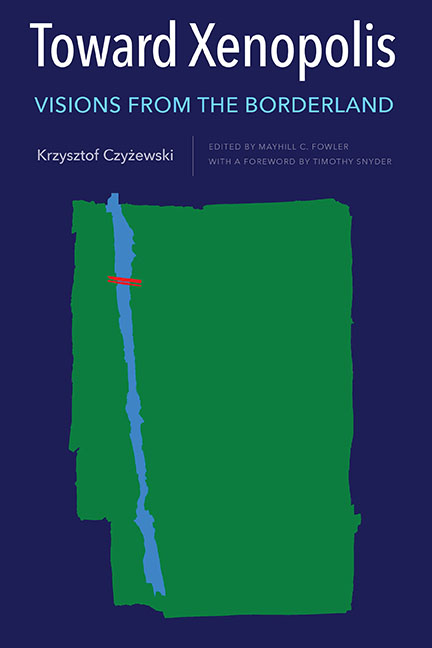Xenopolis
Published online by Cambridge University Press: 16 July 2022
Summary
About an escape from the principle of opposites, featuring two monks and a woman on the riverbank, a doctor, and a philosopher
Part One
The Lost Mystery of Community
We have destroyed the Berlin Wall, opened borders, adopted the Internet, and most of us live in multicultural cities. But the existence of a wall is the lived experience of modern Europeans. In view of the rising tide of immigrants, and perhaps, primarily, of the growing weakness of the center that we were accustomed to regard as exclusively ours, we begin to build walls, fences, and barbed wire along the borders of nation states. At the same time, we are aware that the deepening divisions are less and less a question of the barriers of language, ethnicity, or political systems. Today's walls grow between communities living on the same side of the river and are erected by the sharp and confrontational boundaries of cultural identities. The increasing proximity of the Other, one not outside of our world but within our intimate space once reserved for what is familiar and close, builds a new wall that seals off our contemporary anxieties and confusion. We realize more and more clearly that our identity is no longer one with the spirit of community, and that by waging battles in defense of the first value, identity, we have lost much of the spirit of the latter, community. The problem of contemporary Europe is not about reinforcement of diversity and differences, but about what Czesław Miłosz called “a connective tissue,” the concept on which he based his “native realm.” Therefore, the contemporary narrative of Europe is the story of coexistence. Because only coexistence is able to direct this current of thought and action that can once again tear down the wall built on the Old Continent—now not the world of enslavement and the Cold War, but the world of growing closeness to the stranger.
Our community life is currently in a deep crisis. Europe increasingly resembles the village portrayed by Werner Herzog in his film Heart of Glass, where the mystery underlying the life of the village inhabitants was lost and prophets announced the end of the world. With the migrants in arm’s reach, we look desperately for a scapegoat and treat Muslims with suspicion.
- Type
- Chapter
- Information
- Toward XenopolisVisions from the Borderland, pp. 3 - 26Publisher: Boydell & BrewerPrint publication year: 2022



